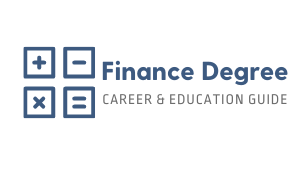It’s important to know that someone who is a CFA (Chartered Financial Analyst) does not necessarily have the job title of “financial analyst”.
The University of Maryland, Baltimore County’s Department of Economics explains that it is the most prestigious designation for those in professions related to investments, financial analysis and money or portfolio management.
Utah State University’s Department of Finance and Economics adds that, “Becoming a CFA can help individuals become elite in the profession.” Furthermore, according to the CFA Institute (which administers the charter), the “CFA designation remains the gold standard of investment credentials worldwide”.
While future employers may not require job candidates to be CFA charterholders, it will definitely give those with the designation a competitive edge over other applicants. Not to mention, the process to gain the certification is extremely valuable and relevant to your future finance-related career.
Why Pursue the CFA Charter?
The process for obtaining the Chartered Financial Analyst charter is intense and challenging – that is why it is valued across the financial industry on a global scale. It takes at least 18 months to complete and is considered a graduate level field of study or curriculum.
During the educational program, you will undoubtedly acquire and hone skills and talents that will make you an ideal candidate for a variety of prosperous professions.
CFA Charterholders go on to work as:
- Portfolio Managers
- Securities Traders
- Financial Risk Analysts
- Financial Advisors
- Money Managers
- Investment Bankers
- Sales or Marketing Professionals
- Managers of Investment Firms
- Chief Investment Officers
- Chief Executive Officers
Degree Options
To be eligible to register for the Chartered Financial Analyst Program, generally you must have earned a Bachelor’s (undergraduate) degree or be in your final year of the program. (Also the CFA Institute considers four years of full time professional experience, or a combination of experience and education that adds up to four years, as meeting the pre-requisite).
The CFA Institute will consider candidates from all educational backgrounds, whether you have a degree in history, a biology, finance or any degree in between. However, if you haven’t begun your undergraduate degree yet, and wish to pursue the CFA designation, completing a degree in finance, business, economics or a related field will certainly make the transition into the CFA graduate program that much easier.
The Certification Process
You can enroll for the CFA program once you meet the educational/professional requirements, agree with the code of professional conduct and obtain an international passport.
Examples of CFA Charterholders:
Mario Gabelli
- Founder/CEO of GAMCO Investors
- #392 on Forbes list of wealthiest Americans
- Net Worth: $1.1 Billion (Sept. 2012)
Bill Gross
- Co-founder of Pacific Investment Management Company LLC
- #206 on Forbes list of wealthiest Americans
- Net Worth: $2.3 Billion (Sept. 2012)
According to the CFA Institute, it can take as little as 18 months but generally takes between 3.5 and 4 years to complete the entire program. It involves completing course work in 10 major topic areas, but it is a self-study program that you can pursue at your own pace and thus hold down a job at the same time. There are three exams to write in total. They are extremely rigorous. In June of 2012, 38% of participants passed the Level I exam, 42% passed Level II and 52% passed Level III.
Finally, to become a full-fledged charter-holder you must gain 48 months of relevant work experience which can be accrued before, during or after you complete the study/exam program.
For more information, visit the CFA Institute at: CFA Institute website
CFA Salary & Job Outlook
Here are salary and job outlooks (according to the U.S. Bureau of Labor Statistics) for some professional categories that CFA charterholders work within as they pursue or after they have gained their designation:
| Financial Analysts | Job Outlook: 23% (2010-2020) | Median Salary: $74,350/year (2010) |
| Securities/Commodities/Financial Services Sales Agents | Job Outlook: 15% (2010-2020) | Median Salary: $70,190/ year (2010) |
| Financial Managers | Job Outlook: 9% (2010-2020) | Median Salary: $103,910/year (2010) |
- Career statistics and employment data provided by:
- * Salary Data: https://www.bls.gov/ooh/business-and-financial/accountants-and-auditors.htm
- ** Job Growth Data: http://www.bls.gov/ooh/business-and-financial/accountants-and-auditors.htm



